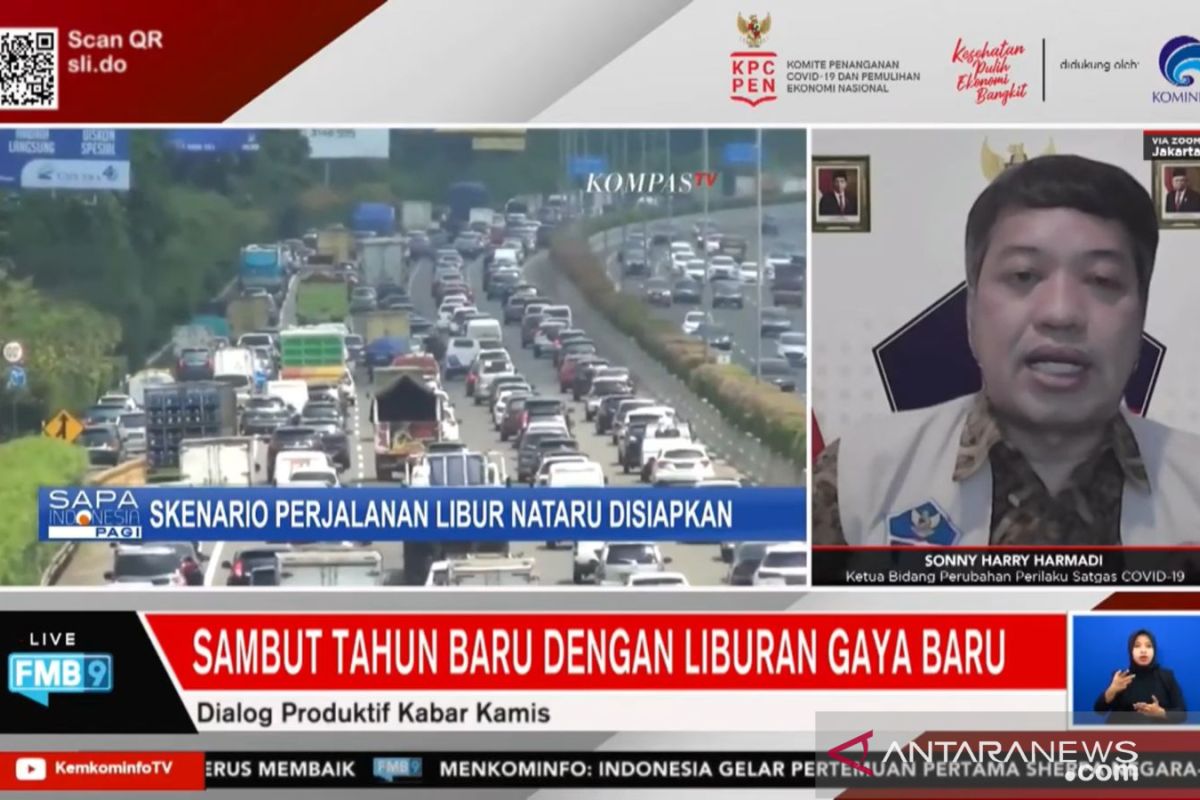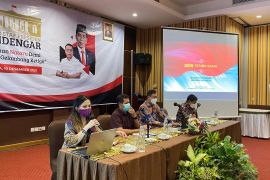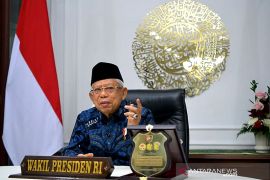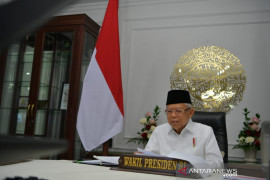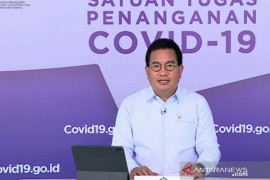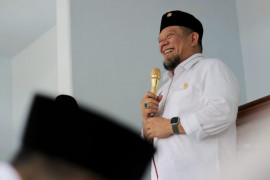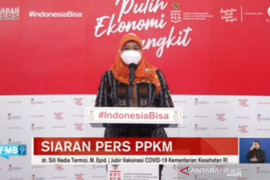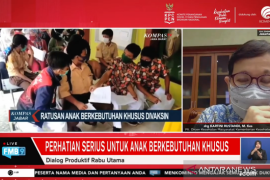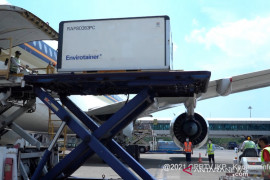All of us encourage celebrating new year with our respective families, which means no crowding.Jakarta (ANTARA) - The COVID-19 Handling Task Force encourages efforts to limit mobility during the Christmas and New Year holidays to prevent the spread of the Omicron variant of COVID-19 recently detected in Indonesia.
Head of the COVID-19 Task Force's Behavioral Change Department, Sonny Harry Harmadi, noted that the strategy to prevent the spread of Omicron remains the same as that for handling other COVID-19 variants.
"All of us encourage celebrating new year with our respective families, which means no crowding," Harmadi stated during an online discussion here on Thursday evening.
He expects that citizens looking to mobilize during that period will conduct a personal evaluation, such as understanding their health condition and assess the risk of mobility.
Related news: Omicron case: Minister asks people to stay calm
In addition, they should consider choosing tourism destinations where there are no crowds. Currently, the prevalence of open alternative tourism becomes one of the options.
Regulations created as travelling requirement became the most important mobility restriction guideline to adhere to, Harmadi affirmed.
In addition, the ban on leave for state civil apparatuses (ASN) and state-owned enterprises (SOEs) employees is expected to be able to reduce the potential drastic rise in mobility.
Related news: Minister asks public not to travel abroad during holidays
Other regulations to support this effort include closing the town square during the New Year and restricting the capacity of tourism destinations to a maximum of 75 percent.
Moreover, the odd-even traffic rule at priority tourism destinations and also certain restrictions on cultural activities are in place.
Earlier, Minister of Health Budi Gunadi Sadikin confirmed one COVID-19 positive case caused by the B.1.1.529 variant, or Omicron, in Indonesia on Thursday.
A janitor working in Wisma Atlet was found to have contracted the Omicron variant of COVID-19.
Related news: Two-thirds of Indonesians get first vaccine doses
Related news: Over 93.1 million Indonesians receive second vaccine dose
Translator: Devy Nindy, Fadhli Ruhman
Editor: Fardah Assegaf
Copyright © ANTARA 2021
